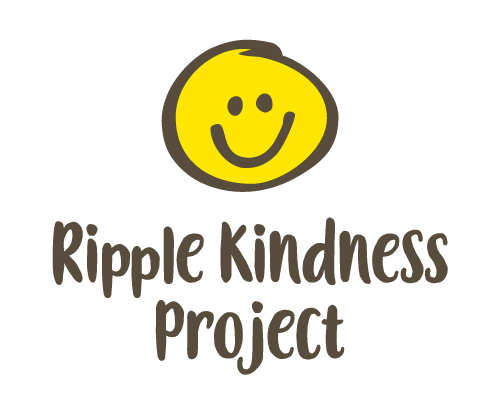8 Reasons Why an Attitude of Gratitude Improves Mental Health and Wellbeing
The older I get, the more I’m hearing people complain of a lack of joy and fulfillment in their lives. Personally, I think this is often caused by an imbalance in physical, emotional, intellectual, and spiritual needs. In other words, people are not allowing themselves the right amount of sleep, nutrition, exercise, work, security, intellectual stimulation, attention, sense of achievement, socialization, fun, time alone and so on.
While exploring ways to increase happiness, many people identify a lack of spiritual satisfaction which often leads them on a journey that results in an attitude of gratitude.
More...
What is Gratitude?
Robert Emmons is recognized as the world’s leading scientific expert on gratitude. He describes gratitude as “a felt sense of wonder, thankfulness, and appreciation for life” and explains it as an acknowledgment and an appreciation of things that are given to or done for someone. He goes on to say that the good feelings associated with gratitude inspire people to create the same feelings for others.
Most people learn basic gratitude as children when they're taught to say thank you, show respect and help others. But in this busy and disposable world, it seems many have developed a sense of entitlement, feeling it’s their right to live their lives a particular way, instantly have the best instead of working and saving for it and taking so much of their lives for granted.
Why is an Attitude of Gratitude Important?
Positive psychology research proves that gratitude is strongly associated with the emotions that help people enjoy greater health and happiness. It can also play an important role in nurturing relationships and can even inspire people to take better care of themselves.
A study conducted by scientists Ken Sheldon, David Schkade, and Sonja Lyubomirsky discovered that the components affecting happiness can be divided into three sections:
1) A natural “Set Point” that you are born with (50%),
2) Life Circumstances (10%), and
3) Intentional Activity (40%).
In simple terms, it's our behavior that's most likely to increase our level of happiness.
1. Increased Happiness
People who incorporate gratitude into their daily lives have a more optimistic outlook and are more appreciative of everyday things. As they are less likely to take things for granted, they are more inclined to be moved by the little things that can seem quite mundane to others. And because their attitude towards life may be easier going, feeling that whatever comes their way is a blessing, disappointment may not be a factor that greatly affects their mood. Being able to see the bright side of life rather than focusing on a lack, is a major factor in improving happiness.
NOTE: If you're struggling with life's challenges or want professional help, explore affordable and convenient online therapy options.

2. Greater Life Satisfaction
Grateful people tend to be less materialistic and more hopeful. They’re also likely to be more resilient and less likely to feel they’re a victim when things don’t go their way. Being better able to cope with tragedies and crisis helps improve the quality and experiences they have in life.
3. Better Physical and Mental Health
It's proven that people who live with gratitude are less likely to suffer from anxiety or depression. It's been shown that grateful people are more optimistic and apart from an increase in energy, optimism has a number of health benefits. And it's not just mental health that's positively impacted, but physical health too. Gratitude has a positive effect on immunity, blood pressure, heart disease, cancer outcomes, pain tolerance and even pregnancy.
NOTE: You should not rely on gratitude alone for optimum wellness but when used in combination with complementing remedies or supplements prescribed by your doctor, it can greatly contribute to overall wellbeing.
4. Increased Self-Esteem
People experiencing heartfelt gratitude and high levels of happiness have far greater self-esteem and confidence than those with an attitude of doom and gloom. Being grateful focuses our attention on happier, more positive thoughts which helps them feel better about themselves and banishes negative self-talk. Being appreciative of the things people have done for them can help them see just how much they're cherished and valued, hence increasing their self-worth in their own mind.





5. Higher Level of Success
It's been shown that people with a grateful disposition are more likely to reach their goals faster. Those in managerial positions report that thanking their colleagues and showing genuine appreciation for their efforts, improves productivity and motivates enthusiasm and loyalty.
6. Greater Academic Success
A study conducted by Psychologist Jeffrey Froh showed students who regularly practised gratitude were more optimistic, more satisfied in life and more positive about school.
Another study suggested that grateful adolescents form stronger friendships, are more satisfied at home and less materialistic. They're also likely to have greater self-esteem, give more emotional support to others, be more engaged in schoolwork and achieve higher grades.
7. Greater Resilience
People with an attitude of gratitude are more likely to recover faster from a setback. Seeing the brighter side of negative situations allows them to find the lesson and move on to count their blessings in other aspects of life.
8. Stronger Relationships
People who express their gratitude for their friends, partner or loved ones are rewarded with more positive feelings and given more trust and respect. One study showed that expressing gratitude to a partner allowed a couple to feel more comfortable talking about relationship concerns and made them more forgiving and responsive to each other's needs.
Cultivating and Attitude of Gratitude
Being grateful isn’t always easy. Attitude towards life can greatly depend on the environment in which people live, the people they associate with and the experiences they’ve had. Stress also plays a major part in people feeling ungrateful for what they have or the situation they’re in.
But as Robert Emmons explains, “Without gratitude, life can be lonely, depressing and impoverished. Gratitude enriches human life. It elevates, energizes, inspires and transforms. People are moved, opened and humbled through expressions of gratitude.”
As gratitude is a “chosen attitude”, let's explore the ways in which it can most successfully incorporate into daily life.
Gratitude Journal
Our expert on gratitude, Robert Emmons strongly believes that keeping a gratitude journal is one of the best ways of changing attitudes. He shares some research-based tips to help people benefit the most from their journal.
No need to get a fancy journal. Something as simple as an exercise book is fine, but if purchasing one specifically designed for gratitude, there are a number of great options below (affiliate links that support our outreach program):
Thank Key People in Your Life - The "Gratitude Visit"
Martin Seligman, the founding father of positive psychology, developed a simple, but highly effective exercise known as the "gratitude visit". This exercise, found in his highly acclaimed book "Flourish", promises to enhance well-being and reduce depression.
Martin Seligman's exercise:
Close your eyes. Call up the face of someone still alive who years ago did something or said something that changed your life for the better. Someone who you never properly thanked; someone you could meet face-to-face next week. Got a face?
Gratitude can make your life happier and more satisfying. When we feel gratitude, we benefit from the pleasant memory of a positive event in our life. Also, when we express our gratitude to others, we strengthen our relationship with them. But sometimes our thank you is said so casually or quickly that it is nearly meaningless. In this exercise … you will have the opportunity to experience what it is like to express your gratitude in a thoughtful, purposeful manner.
Your task is to write a letter of gratitude to this individual and deliver it in person. The letter should be concrete and about three hundred words: be specific about what she did for you and how it affected your life. Let her know what you are doing now, and mention how you often remember what she did. Make it sing! Once you have written the testimonial, call the person and tell her you’d like to visit her, but be vague about the purpose of the meeting; this exercise is much more fun when it is a surprise. When you meet her, take your time reading your letter.
You can read more about this exercise here.
Stop Complaining
Complaining seems to be a natural part of most people’s character, something many do several times a day without really noticing. Though it enables them to get things off their chest, complaining usually causes more harm than good and rarely yields a positive result. When people complain, they’re reinforcing negative emotions, re-living stress and frustration, and impacting their mood and self-esteem.
People can practice mindfulness and STOP when a negative thought presents or spiteful words start tumbling out their mouth and replace the negative dialogue with positive thoughts or words about the good things that have happened and things they're (or should be) grateful for.
Remind Yourself
Visual reminders are great when first starting out. Magnets, posters, colouring pages and notes around the house are great ways to help discourage a negative attitude and refocus on the positives.
Volunteer
Giving or doing for others creates feelings of gratitude for the recipient and a sense of pride and happiness for the giver. Apart from the good feelings that are created when volunteering time or giving a gift, it’s also a way of seeing how fortunate we are compared to those being helping. People who experience someone else’s misfortune often come away with strong feelings of gratitude for the things and people in their own lives.
Savor The Good Times and The Bad
Most people are conditioned to react negatively or question “why me” when something bad happens. But people who practice gratitude are more likely to find the positives in a negative situation. Just because it’s not something that was planned, or it causes unhappiness doesn’t mean there’s nothing good to be taken from it.
So, as you can see, a little time savoring the good things in life can lead us all to a much more positive state of mind with very powerful and life-changing outcomes.
Gratitude in Children
Teaching gratitude to children fosters a range of benefits, including increased happiness, improved relationships, and enhanced emotional well-being. Children who practice gratitude learn to appreciate both small and large aspects of their lives, which nurtures optimism and resilience [2]. Studies have shown that expressing gratitude helps kids develop empathy, self-regulation, and stress management skills, which are crucial for long-term mental health [4].
Activities to Nurture Gratitude:
- Gratitude Journal: Encourage children to write down three things they're grateful for each day. This simple activity helps them focus on positive moments.
- Gratitude Circle: In a group, children take turns expressing what they are thankful for. This fosters connection and empathy by sharing personal appreciations.
- Thank You Notes: Writing thank-you notes to friends, family, or teachers can help children express appreciation and strengthen relationships [3].
- Kindness Jar: Create a jar where kids place notes about acts of kindness they received or performed, building an ongoing awareness of gratitude [6].
Regular practice of these activities can cultivate a lasting attitude of gratitude, leading to greater happiness and emotional resilience in children.
What's your favorite way to practice gratitude?
You may also like...



AUTHOR: Lisa Currie - Ripple Kindness Project
Lisa is passionate about contributing to a happier world by building emotional intelligence in kids through fun and engaging social-emotional learning resources. Her core value is kindness as she believes it to be the “mother” of all character traits. She started Ripple Kindness Project to spread kindness in schools and communities. She is also the founder and director of an outreach program that supports disadvantaged families.
Disclaimer: There are some affiliate links on this site. They help fund our outreach program Nourish Network which supports disadvantaged school families in Melbourne.





